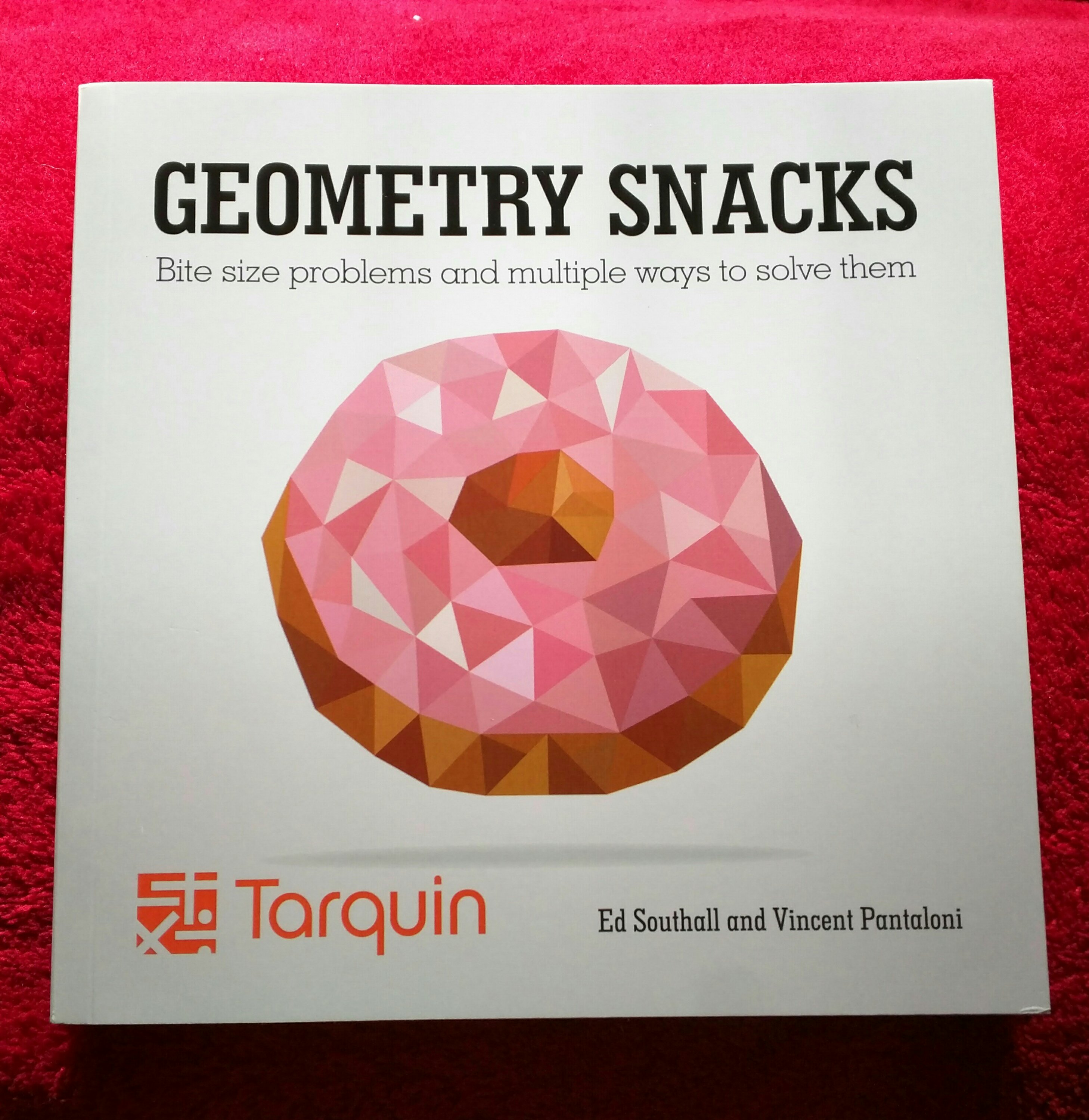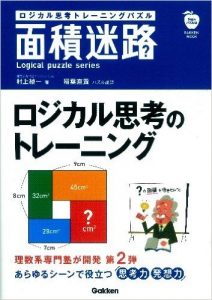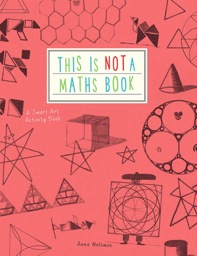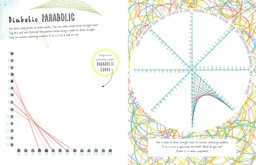Here in the UK there are major curriculum changes going on. There is new content in the curriculum – unless you are a certain age, in which case it’s old stuff coming back. All the current class textbooks will be missing chunks of the syllabi and who can afford to buy class sets of new ones. Canny teachers are filling the gaps with worksheets and booklets. However that in class reference for these topics is an issue.
I thought I’d get a few class maths dictionaries – you know, the little pocket sized ones. Dead-end: no one publishes them anymore. Then I thought ‘Just get standard Maths dictionaries’: no chance, they are over £10 each. I saw a celebrity endorsed child’s Maths support book in my local discount store, bright and colourful, only £5 … except it didn’t have the content for GCSE. I was about to give up when a search of Amazon took me back to 1979…
Peter Robson published his Maths Dictionary through Newby books back in 1979.
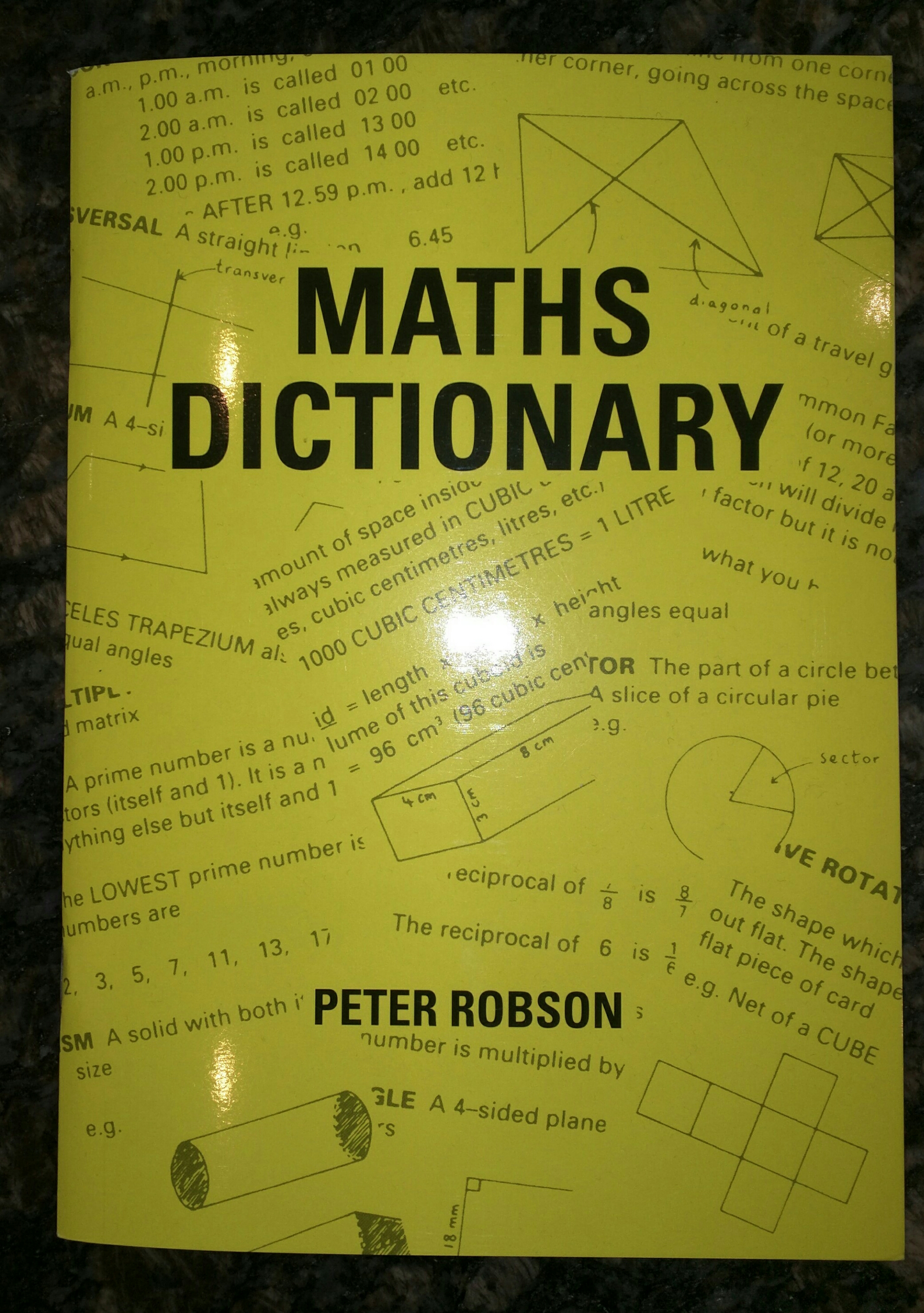
It’s got the new curriculum fairly well covered too. The diagrams date it a little, but for roughly £4 it is a little gem.There are not only facts, but examples and diagrams in an unintimidating fashion. It’s also a handy A5 booklet size.
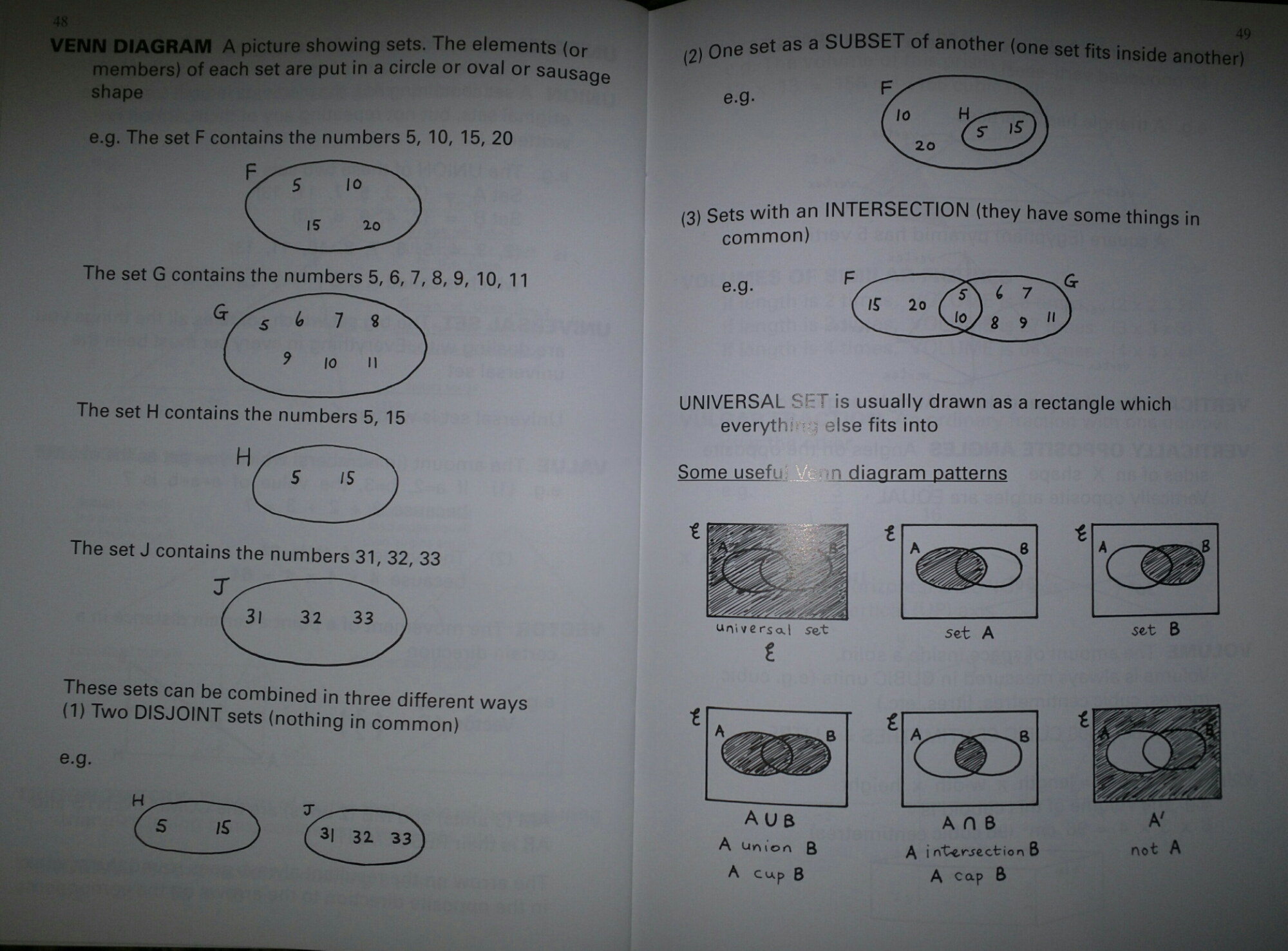
I’ve bought one for each of my group tables. It’s available from lots of online retailers, including a bulk discount for 10 or more on Amazon. I’d suggest getting one for yourself to review and then leave in your desk drawer for general reference.
The ISBN is: 978-1-872686-18-9
Thank you Mr Robson
Like this:
Like Loading...

